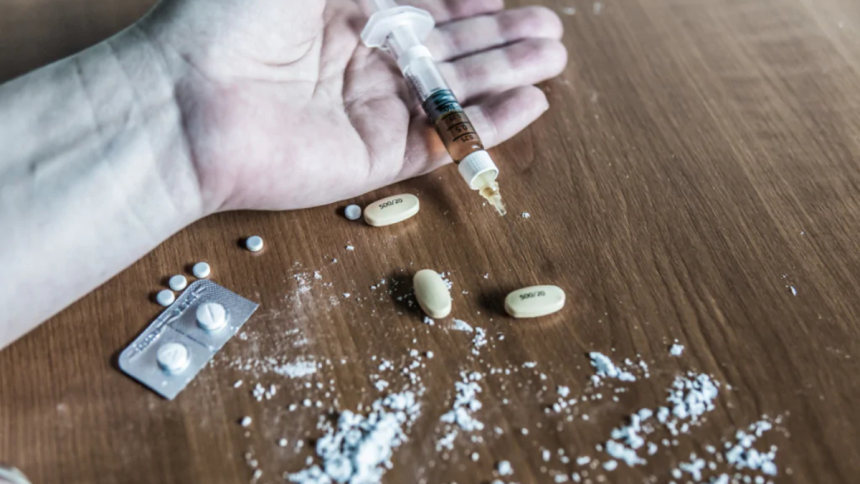Fentanyl is a synthetic opioid commonly used to treat severe pain in people with chronic pain or cancer. It’s about 100 times stronger than morphine, making it highly effective—but also very dangerous. Because of its strength, fentanyl addiction has become a major part of the opioid crisis in the United States.
Fentanyl addiction often leads to serious health risks, including a high chance of opioid overdose. Many people start with prescription use but quickly develop dependence. If you or someone you love has struggled with fentanyl, knowing the signs and seeking professional help is the first step toward recovery.
What Is Fentanyl?
Fentanyl is a synthetic opioid drug that doctors prescribe to treat severe pain, especially when other prescription opioids stop working. It comes in several forms, including a fentanyl patch, nasal spray, lozenges, and injections. While it’s effective in medical settings, street versions of fentanyl are often mixed with other drugs without the user knowing.
This makes fentanyl extremely dangerous, as just a few grains can be life threatening. Illegally made fentanyl is a major cause of opioid overdoses in the United States. Because of these risks, anyone misusing the drug should consider getting help through a professional fentanyl rehab program.
Why Is Fentanyl So Addictive?
Fentanyl is highly addictive because it changes how the brain processes pleasure and pain. It connects to the brain’s opioid receptors and causes a strong but short-lasting high. This often leads people to take more of the drug to feel the same effect.
As use continues, the body builds tolerance and needs larger amounts to get relief. This cycle can quickly lead to substance use disorder or opioid use disorder. Even those who begin using fentanyl with a prescription can become addicted if not closely monitored by a doctor.
Common Fentanyl Addiction Symptoms
Recognizing fentanyl addiction symptoms early is an important step in preventing serious health risks. These signs can show up physically, emotionally, and behaviorally, often disrupting daily life. While the symptoms may differ from person to person, the effects are always serious.
These symptoms can be different for each person, but many people show the following signs:
- Strong cravings or using the drug even when it causes problems
- Behavior changes like lying, being secretive, mood swings, or pulling away from others
- Physical signs like sleepiness, confusion, tiny pupils, or feeling sick
As the addiction worsens, people may lose interest in work, relationships, and personal responsibilities. Many who have struggled with fentanyl try to hide their drug use, making it harder for loved ones to notice the problem. Withdrawal symptoms like anxiety, sweating, muscle pain, and insomnia often appear when the drug is not available.
The Effects of Fentanyl Addiction
The effects of fentanyl addiction can deeply impact every part of a person’s life. It can harm physical health, mental well-being, and personal relationships over time. Continued use increases the risk of serious complications and long-term damage.
Long-term use can lead to:
- Slow breathing and a weaker heart
- Mood changes, memory issues, and trouble thinking clearly
- Damage to organs and a higher chance of getting sick
The most serious outcome of fentanyl addiction is a high risk of overdose, especially when the drug is mixed with other substances. These life-threatening effects can happen quickly and without warning. Long-term recovery begins with recognizing the danger and seeking help through professional treatment.
Can Fentanyl Addiction Be Treated?
Fentanyl addiction can be treated successfully, but it requires professional help and medical supervision. Because fentanyl is very powerful, quitting on your own can be unsafe and lead to serious withdrawal symptoms. Medical support ensures the process is as safe and comfortable as possible.
Treatment programs provide a safe space for people to manage withdrawal and address the underlying causes of their addiction. They also teach coping skills and strategies to maintain long-term sobriety. With the right care and commitment, lasting recovery from fentanyl addiction is achievable.
What to Expect in a Fentanyl Addiction Treatment Plan
A strong fentanyl addiction treatment plan addresses both physical and mental health needs. It includes multiple steps designed to support recovery at every stage. This comprehensive approach helps individuals heal fully and build lasting sobriety.
Medical Detox
This is the first step. Detox helps the person safely stop using fentanyl. At Windward Way, detox is done under medical care. Staff members check vital signs, give medicines, and support clients 24/7.
Therapy and Counseling
After detox, clients take part in therapy to deal with the mental and emotional parts of addiction. This might include one-on-one therapy, group therapy, and support for families.
Aftercare Planning
Recovery doesn’t stop after leaving a program. Ongoing support is key. That’s why Windward Way offers aftercare options like sober living, peer support, and relapse prevention.
Harm Reduction Tools
Some people use fentanyl test strips to check if their drugs have fentanyl in them. These tools can help prevent overdose, but they are not a replacement for treatment. Windward Way includes education on how to reduce harm while encouraging full recovery.
Each person is different, so every fentanyl addiction treatment plan at Windward Way is personalized to fit their unique needs.
Trusted Fentanyl Addiction Care at Windward Way Recovery
Picking the right fentanyl addiction treatment center matters. At Windward Way Recovery, we understand how dangerous fentanyl is and how hard it can be to stop. Our team has experience helping people recover from all types of opioid drug addictions, including fentanyl.
Here’s what you can expect from us:
- 24/7 medically supervised detox
- A personal treatment plan designed for you
- A safe, supportive place to heal
- Long-term addiction treatments to help prevent relapse
Whether you or a loved one needs help, Windward Way is ready to support you through every step—from detox to aftercare.
Take Action Against Fentanyl Addiction and Save Your Future
Fentanyl addiction is serious and can be deadly, but there is hope for recovery. Early intervention is critical for anyone showing signs of opioid use disorder. At Windward Way Recovery, we help men and women overcome addiction by providing community, connection, and purpose.
If you or someone you love needs help, don’t wait to reach out. Call us today at (949) 749-3522 to learn about our specialized programs for fentanyl and other opioid drug addictions. Our team is here to guide you toward healing, safety, and a better future.
Lynn Martelli is an editor at Readability. She received her MFA in Creative Writing from Antioch University and has worked as an editor for over 10 years. Lynn has edited a wide variety of books, including fiction, non-fiction, memoirs, and more. In her free time, Lynn enjoys reading, writing, and spending time with her family and friends.















